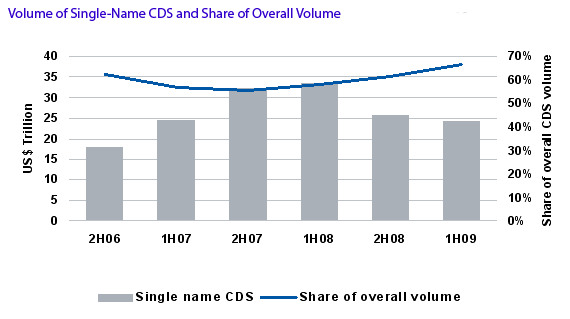Counterparty Risk in Nonstandardized Credit Default Swaps Market
Abstract
A study by Celent looks at the credit default swaps (CDS) market and analyzes recent issues.
In this report, Counterparty Risk in Nonstandardized Credit Default Swaps Market, Celent looks at the state of the CDS market and discusses the various measures that have been taken to reduce risk since the credit crunch. It also evaluates a number of recommendations to reduce counterparty risk at the systemic level.
Single-name CDS volume, as a share of notional outstanding volume, has gone up since the second half of 2007 and even exceeded 2006 levels in 2009. This underlines the important role of nonstandardized CDS in the credit derivatives market and highlights the need to deal with counterparty risk for this category.  “The leading banks/dealers in the OTC derivatives markets are the main buyers and sellers of CDS. Hence, the chances of having them as a counterparty are quite high. This circularity within the system increases counterparty risk and we need to tackle it without hampering the market performance,” says Anshuman Jaswal, Celent analyst and author of the report. “Importantly, from a regulatory point of view, there should not be a penalty for using nonstandardized CDS because they play a crucial role in the efficient functioning of the credit markets. Also, we need to ensure that there is no confusion due to overlap in regulatory powers of different financial regulators, both nationally and internationally.”
“The leading banks/dealers in the OTC derivatives markets are the main buyers and sellers of CDS. Hence, the chances of having them as a counterparty are quite high. This circularity within the system increases counterparty risk and we need to tackle it without hampering the market performance,” says Anshuman Jaswal, Celent analyst and author of the report. “Importantly, from a regulatory point of view, there should not be a penalty for using nonstandardized CDS because they play a crucial role in the efficient functioning of the credit markets. Also, we need to ensure that there is no confusion due to overlap in regulatory powers of different financial regulators, both nationally and internationally.”

